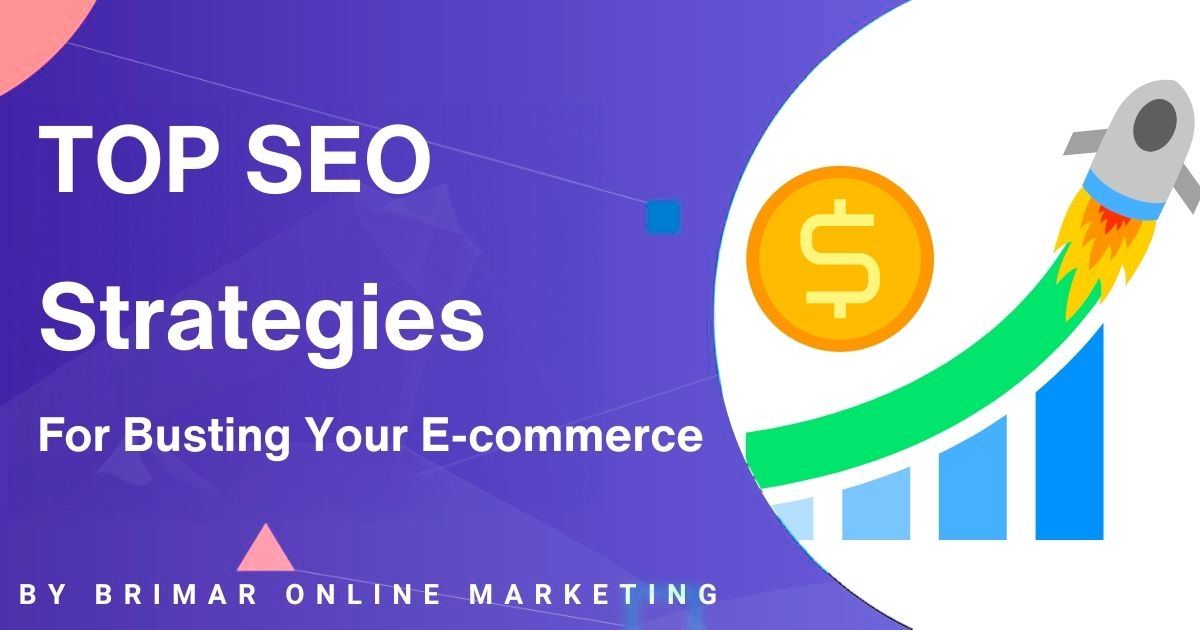
In e-commerce, having a strong online presence is key to success.
Search Engine Optimization (SEO) plays a pivotal role in driving organic traffic to your online shop and increasing visibility among potential customers.
Whether you’re selling fashion, electronics, home goods, or niche products, mastering SEO techniques can significantly boost your website’s performance and, ultimately, your sales.
In this comprehensive guide, we’ll delve into effective strategies and actionable insights to help online shops enhance their SEO efforts.
Importance of SEO for Online Stores
SEO is a dynamic strategy that transcends the surface goal of improving search engine rankings.
At its core, SEO is about understanding and anticipating the needs of your target audience throughout their purchasing journey.
When your online shop strategically aligns with these needs and appears prominently in search results for relevant queries, it creates a powerful synergy.
The organic traffic generated through effective SEO is particularly valuable because of its quality and relevance.
Unlike other forms of marketing that may cast a wide net and reach a broad audience, SEO targets individuals who are already demonstrating intent through their search queries.
These users are more likely to be in the consideration or decision-making phase of their buying journey, making them highly valuable prospects.
By appearing prominently in their search results, your online shop becomes a trusted source of information or solutions, positioning you ahead of competitors and increasing the likelihood of securing sales.
Start Attracting Customers Through SEO Today!
We can help you attract new customers through Tailored Search Engine Optimization Strategies for Your Business.
Six Key Elements of Effective SEO Strategy
A comprehensive SEO strategy involves multiple essential components working together to enhance a website’s visibility and ranking on search engines.
Understanding and implementing these elements can significantly enhance online presence and drive organic traffic.
These elements are listed below:
1. Keyword Research and Optimization
Keyword research is the foundation of SEO.
It involves identifying the search terms (keywords) that potential customers are using to find products like yours.
Tools like Google Keyword Planner, SEMrush, or Ahrefs can help you discover relevant keywords with high search volume and moderate competition.
- Long-Tail Keywords: These phrases are longer and more specific, with lower search volume but higher conversion rates. For example, instead of targeting “smartphones,” you might focus on “best budget smartphones under $300.”
- Optimizing Product Pages: Incorporate your target keywords naturally into product titles, descriptions, meta tags, and URLs. Keep in mind that overusing keywords can harm the user experience and negatively affect your website’s SEO.
2. Optimizing Site Structure and Navigation
A well-organized site structure not only enhances user experience but also improves SEO by making it easier for search engines to crawl and index your pages.
- Clear Hierarchy: Organize your products into categories and subcategories that reflect how customers search for them. For instance, if you sell clothing, have separate categories for men’s, women’s, and children’s apparel.
- Internal Linking: Link-related products, categories, and blog posts within your site to distribute link equity and guide users to relevant content. This also helps search engines discover and index new pages.
3. Creating High-Quality Content
Content is crucial for SEO as it provides value to your audience and gives search engines more context about your online shop.
- Product Descriptions: Write unique, compelling descriptions for each product that incorporate relevant keywords naturally. Avoid using manufacturer-provided content, as it may be duplicated across other websites.
- Blog Posts and Guides: Publish informative blog posts, buying guides, tutorials, and other content that addresses common questions and interests of your target audience. This not only attracts organic traffic but also establishes your authority in your niche.
- User-Generated Content: Don’t forget to ask your customers to leave reviews and ratings. User-generated content not only adds fresh content to your site but also builds trust with potential buyers.
- Visual Content: Utilize high-quality images, infographics, and videos to enhance user engagement. Ensure that all visual content is optimized with descriptive alt texts and relevant keywords.
4. Mobile Optimization
With the rise of mobile browsing, optimizing your online shop for mobile devices is essential for both SEO and user experience.
Here are three important points to keep in mind:
Responsive Design
- Ensure your website is responsive and adapts seamlessly to different screen sizes and devices.
- Google prioritizes mobile-friendly websites in its search rankings, making this a crucial aspect for SEO.
Page Speed
- Improve loading times by optimizing images, leveraging browser caching, and using a content delivery network (CDN).
- A fast-loading website enhances user experience and reduces bounce rates, keeping visitors engaged and more likely to convert.
User-Friendly Navigation
- Simplify your site’s navigation to make it easy for users to find what they need quickly.
- Use clear menus, concise labels, and intuitive design elements to guide users through your site efficiently, improving overall satisfaction and usability.
5. Technical SEO
Technical SEO focuses on optimizing elements that affect search engine crawling and indexing of your website.
Site Speed
- Importance: A fast-loading website is crucial for SEO.
- Tools: Use tools like Google PageSpeed Insights.
- Actions: Identify and fix performance issues such as large images, server response times, and unnecessary scripts.
Schema Markup
- Purpose: Implement schema markup (structured data) to provide search engines with additional information.
- Benefits: Helps search engines understand your content better.
- Examples: Use schema for products, reviews, prices, and availability to enhance visibility in search results with rich snippets.
Mobile-Friendliness
- Importance: With the rise of mobile users, ensuring your site is mobile-friendly is critical.
- Tools: Make sure to use Google’s Mobile-Friendly Test to check if your site is responsive.
- Actions: Optimize for different screen sizes, ensure buttons are easily clickable and content is easily readable on mobile devices.
6. Building Quality Backlinks
Backlinks from reputable websites are a strong signal to search engines that your online shop is trustworthy and authoritative.
- Guest Blogging: Write guest posts for relevant blogs and websites in your industry. Include a link back to your online shop in your author bio or within the content, if appropriate.
- Influencer Partnerships: Collaborate with influencers or bloggers who can promote your products and link back to your website. This not only drives traffic but also improves your backlink profile.
Monitoring and Measuring SEO Success
Implementing these SEO strategies is just the first step.
It’s crucial to continuously monitor your website’s performance and make adjustments based on data-driven insights.
Google Analytics
Use Google Analytics to track key metrics such as organic traffic, conversion rates, and bounce rates.
Organic traffic shows how many visitors come from search engines, conversion rates reveal how effectively visitors are turned into customers,
and bounce rates indicate the percentage of visitors who leave after viewing only one page.
It is important to regularly analyze these metrics as it helps to identify trends and areas for improvement.
SEO Tools
Utilize tools like Google Search Console, SEMrush, or Moz to monitor keyword rankings, inbound links, and technical issues.
Google Search Console provides data on search queries, indexing status, and errors.
SEMrush and Moz offer keyword tracking, competitive analysis, and technical SEO audits, helping you understand and enhance your website’s performance.
By leveraging these tools and continuously analyzing the data, you can refine your SEO strategies, improve website performance, and achieve better search engine rankings
Final Thoughts
Improving SEO for your online shop requires a combination of technical expertise, strategic planning, and continuous optimization.
Focusing on creating high-quality content, optimizing your website’s structure, and building a solid backlink profile can enhance your visibility in search engine results and attract more qualified traffic.
Remember, SEO is an ongoing process that requires dedication and adaptation to evolving search engine algorithms.
Staying informed and proactive can position your online shop for long-term success in the competitive e-commerce landscape.
Would you like to get started with SEO for your online shop?
Feel free to contact us
Our SEO Services Have Helped Our Clients Increase Their Revenue!
“I highly recommend Brimar if your looking to grow your online business. You will be satisfied with the high level of expertise and high quality of services. It has helped my business grow by leaps and bounds.”
CEO

